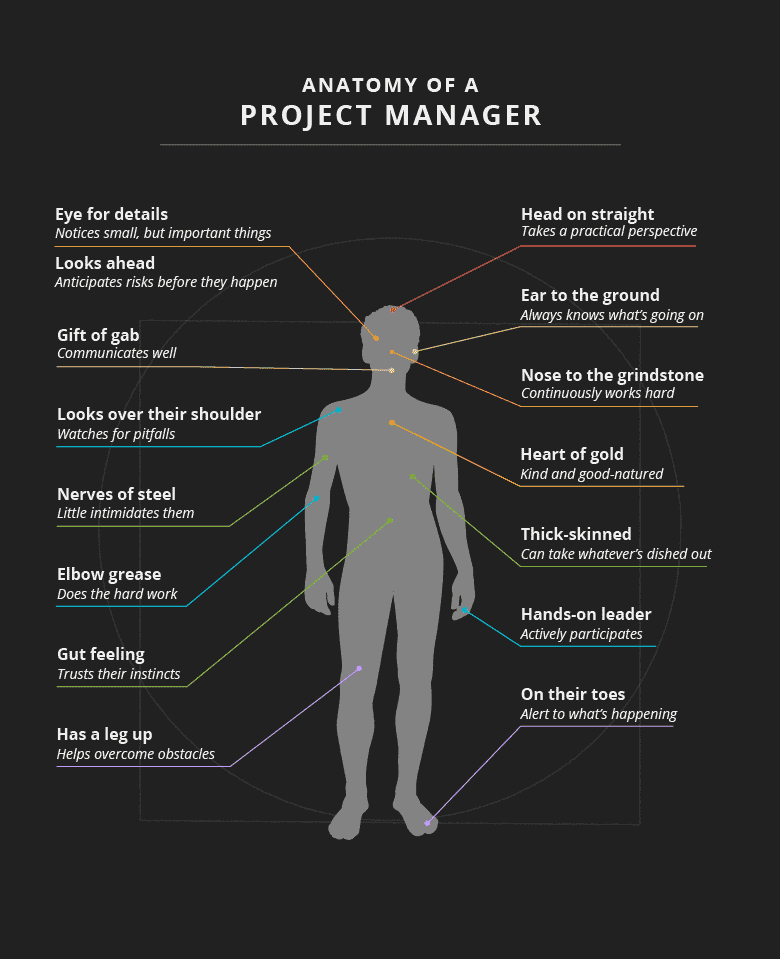What skills does a project manager require?
The ideal project manager “specification” includes a combination of hard and soft skills.

Hard skills
Hard skills are the actual processes, procedures, tools and techniques that comprise planning, organizing, monitoring and controlling. This means delivering the assigned project on schedule and within budget, and meeting stakeholder expectations.
As project manager, you’ll be asked to:
Prepare an appropriate project management plan that identifies the objective and the activities required to reach it.
Define the necessary structure, resource requirements and skills.
Monitor and control the project management plan to ensure successful completion and on-schedule delivery..
Monitor and control expenses to ensure the project stays within budget.
Determine communication formats, and prepare and distribute status reports in a targeted, timely manner.
Define, execute and manage processes and procedures for configuration management, change control, risk management, documentation management and product validation.
Soft skills
Soft skills are the project manager’s interpersonal talents, attitudes and behaviors. The project manager has a responsibility to build relationships, gain and maintain support, and provide a positive work experience for stakeholders and team members.
To be an effective project manager, you should display:
- Enthusiasm, passion and energy
- Commitment to excellence and success
- Ability to motivate the team and yourself
- Communication and negotiation skills
- Honesty, openness and approachability
- Empathy and fairness
- Dedication to diversity
Your soft skills will support you in the following roles:
- Leader
- Motivator
- Influencer
- Facilitator
- Communicator
- Negotiator
- Active listener
The makeup of a good project manager is as complex as the projects you’ll encounter. Remember: It’s your role to plan, handle, manage and “sweat the small stuff.” Remove and deal with distractions and issues so others can focus on their responsibilities.
Listen and learn from the team
Allow your team to be themselves. Empathize with them, work with them, try to elicit the best from them. And foremost, listen to them.
Active listening is one of a project manager’s greatest assets. When you take on a new project, sit down with the team. Watch their processes. Look at their schedules. Listen to what they have to say and try to figure out where problems may lie. You can’t learn that by simply barking, “Do this. Do that.” You’ve got to listen. Let the team tell you what they want and what they need to do their job successfully.
What are vital project manager skills?
Seasoned project managers discuss rewarding aspects of project management.
© UT CPE 2016